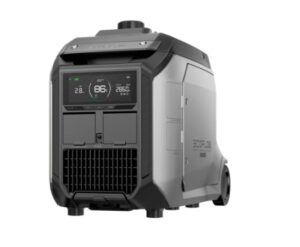
Generators are essential for ensuring uninterrupted power during outages, outdoor events, or off-grid activities. However, choosing the right generator isn’t just about wattage or fuel type—it’s also about noise levels. Many homeowners and businesses in need of backup power face a common dilemma: quiet generators versus standard generators. Understanding the differences can help you make an informed choice that suits your needs.
What Is a Quiet Generator?
A quiet generator, also known as an inverter generator, is designed to operate with minimal noise while delivering consistent power. These generators are engineered with noise-reduction features such as sound-dampening enclosures, insulated casings, and variable-speed engines that adjust based on power demand. Typically, quiet generators operate between 50–60 decibels, roughly the sound of a normal conversation, making them ideal for residential use and outdoor events.
What Is a Standard Generator?
Standard generators, sometimes called conventional generators, focus primarily on raw power output rather than noise reduction. They are typically louder, often ranging from 70–90 decibels, and are designed for industrial, construction, or emergency scenarios where noise is less of a concern. Standard generators are often more robust and capable of powering larger appliances or heavy machinery continuously.
Key Differences Between Quiet and Standard Generators
1. Noise Levels
The most noticeable difference is noise. Quiet generators are designed for minimal disturbance, making them suitable for suburban areas, camping trips, or backyard events. Standard generators, on the other hand, are significantly louder and may require ear protection in prolonged use.
2. Power Output
While quiet generators can power essential appliances like lights, refrigerators, or small tools, standard generators typically provide higher wattage, making them suitable for whole-home backup or commercial applications. If your goal is to run multiple high-power appliances simultaneously, a standard generator may be more appropriate.
3. Portability and Size
Quiet generators are generally compact and lightweight, making them easy to transport. They are ideal for camping, tailgating, or outdoor projects. Standard generators are bulkier and heavier, often requiring wheels or dedicated storage, which can limit mobility.
4. Fuel Efficiency
Quiet generators often use advanced inverter technology that adjusts engine speed to meet power demand, resulting in better fuel efficiency. Standard generators typically run at a constant speed, consuming more fuel over time. For long-term use or frequent operation, a quiet generator can be more economical.
5. Applications
- Quiet Generators: Perfect for homes, RVs, outdoor events, small workshops, and recreational use.
- Standard Generators: Suitable for construction sites, emergency power for entire homes, large workshops, and commercial use.
Advantages of Quiet Generators
- Minimal noise disruption for family, neighbors, and guests
- Lightweight and portable for easy transport
- Fuel-efficient operation reduces running costs
- Ideal for sensitive electronics due to stable power output
Advantages of Standard Generators
- Higher power capacity for multiple appliances
- Continuous operation for long-term backup needs
- Robust design for heavy-duty and industrial use
- Often lower initial cost per watt compared to quiet generators
Tips for Choosing the Right Generator
- Assess Your Power Needs: Determine what appliances or devices you need to run.
- Consider Noise Sensitivity: For residential areas or recreational use, noise levels matter.
- Think About Portability: If you need to move the generator frequently, a compact quiet generator is better.
- Check Fuel Type and Efficiency: Gas, diesel, or propane options can impact long-term costs.
- Budget Wisely: Consider both initial costs and ongoing fuel and maintenance expenses.
Conclusion
Choosing between a quiet generator like a 1000 watt generator and a standard generator comes down to your specific needs. Quiet generators are perfect for those who prioritize noise reduction, portability, and fuel efficiency, while standard generators are ideal for heavy-duty power needs and continuous operation.
Understanding these differences ensures that your investment provides reliable, efficient, and convenient power whenever you need it. Whether you’re powering a home, an outdoor event, or a construction site, selecting the right generator can make all the difference in comfort, functionality, and peace of mind.
